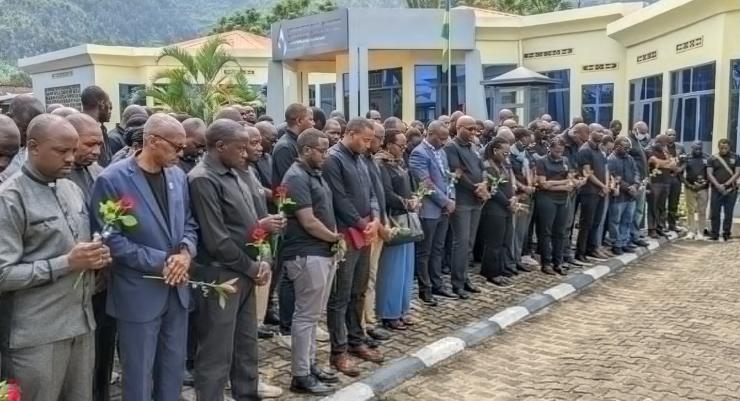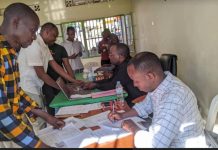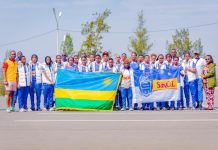Africa-Press – Rwanda. Rwanda Basic Education Board (REB) has called upon teachers to teach the correct history of 1994 Genocide against the Tutsi as part of efforts to combat genocide ideology within schools. The call was made during a visit to Commune Rouge on Monday, June 23, where REB staff, teachers, and sector education officers from Rubavu District, gathered as part of the board’s annual initiative to visit genocide memorials.
This came three days after educators in the country were informed that they have a duty to break the cycle of genocide ideology passed from parents to children, by Thierry Murangira, the Spokesperson of Rwanda Investigation Bureau (RIB), on June 20, as he underscored the delicate yet powerful role educators have in shaping the moral compass of Rwanda’s future generations.
Nelson Mbarushimana, the Director General of Rwanda Basic Education Board, emphasized that visiting genocide memorials, as an institution responsible for national curriculum, “creates a conducive environment for staff to have a full package of the country’s history.”
“The education system played a leading role in the 1994 Genocide against the Tutsi,” he said. “Today, we still need to do our best to teach our students what caused genocide, what happened, with the purpose to avoid these holocausts from happening again.”
Mbarushimana explained that teachers are a “source of knowledge and students believe in them,” emphasizing that teachers should use such opportunities provided to them to comprehensively and correctly teach the country’s tragic history.
“They should use this package and deliver the right message, to ensure that students understand the horrific history of this country and instil in them the culture of unity, patriotism and building their nation,” he added.
Prosper Mulindwa, the Mayor of Rubavu, who welcomed the delegation, highlighted that the visit serves as a platform that equips educators with full knowledge of the tragic history of what happened in 1994.
“This is a significant initiative; when educators have a clear mind, and good politics, nothing bad can happen,” Mulindwa stated.
He noted a decline in genocide ideology-related cases but highlighted a “problem within parents,” reflecting on one case in Cyanzarwe Sector, where a child told classmates that if genocide were to happen again, they would engage in looting.
“This shows that there is a problem within parents,” he explained.
According to Gerard Mbarushimana, the Head of Ibuka – the association of genocide survivors – in Rubavu District, “there are still genocide ideology cases in the neighbouring regions in [DR] Congo including some schools.”
“Schools should learn our past history, and teachers deliver history the way it is. We have observed cases involving adults and children with genocide ideology,” he said, reflecting on how history was taught differently in the past. “You can change this country or give it a better direction.”
Rosie Uwingabire, a teacher who was a member of the visiting delegation, wept after hearing the story of what happened in the area during the genocide.
She said: “I cried because what I heard was unbearable. A lot of people were killed from here. This [tour] will help us better teach the country’s history.”
For More News And Analysis About Rwanda Follow Africa-Press






